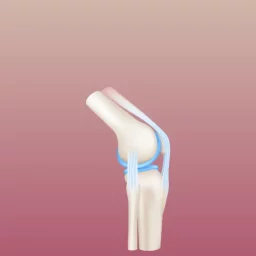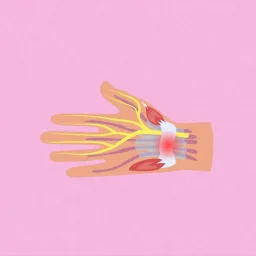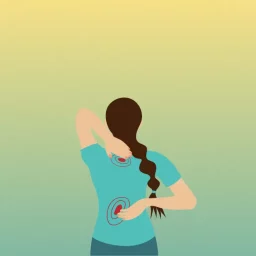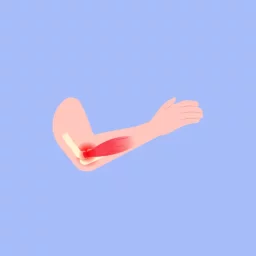Carpal tunnel syndrome is a very common condition that causes pain, numbness, and tingling in the hand and the arm. It mainly occurs when one of the main hand nerves, the median nerve, is either squeezed or compressed through the wrist.
What is the carpal tunnel?
The carpal tunnel is a rigid and narrow passageway that contains ligaments and bones at the base of the hand. It contains the median nerve along with the wrist and finger flexors tendons.
What can cause carpal tunnel syndrome?
Carpal tunnel syndrome is usually caused by a combination of factors. It is known to be more common in women due to hormonal changes that affect fluid retention. Here are the most popular causes of carpal tunnel syndrome:
- A sprain or a fracture: It can cause inflammation in the area and compress the nerve
- Heredity: the anatomic differences between people can make someone more susceptible to this syndrome than others. For example, some people have less space in the area, therefore the nerve can be compressed and squeezed.
- Repetitive hand use: occupational or daily activities can require the same motions over and over that can aggravate the tendons in the wrist which leads to swelling and then compression on the nerve.
- Pregnancy: Hormonal changes and fluid retention during pregnancy can cause swelling around the wrist.
- Other health conditions: thyroid gland imbalance, menopause, diabetes, and inflammatory conditions like rheumatoid arthritis are also conditions that are commonly associated with carpal tunnel syndrome.
- Obesity
- Some medications
How can I know that it might be carpal tunnel syndrome?
There are some symptoms that you should monitor closely, here is a list of the main ones:
- Weakness and clumsiness in the hand
- Numbness, tingling, burning, and pain mainly in the thumb, index, middle, and ring fingers
- Sock-like sensations that radiate to the thumb and index, middle, and ring finger
- Tingling or pain that can travel up the forearm and toward the shoulder
- Dropping things
- A sensation of swelling in the hand
- Relief when moving or shaking the wrist
- Skin colour changes
- Finger stiffness
These symptoms begin gradually with time but can come and go in the beginning, they then become more frequent with time. One of the main complaints of people suffering from carpal tunnel is night-time symptoms. A lot of people sleep with their wrists bent which causes symptoms to appear. We suggest that people wear a wrist brace at night to avoid bending the wrist and prevent symptoms.
Why is it important to consult?
Carpal Tunnel is a condition that gets worse over time in most patients. It is important to diagnose the condition in its early stages and treat it. Therefore, the earlier we seek help, the easier it is to treat. If treatments are delayed, the median nerve can get damaged, symptoms can worsen, and the outcome is less favourable. At that point, surgery could be recommended to take pressure off the median nerve.
If you are experiencing signs and symptoms of carpal tunnel syndrome and want to know more about what you can do, book a consultation with one of our physiotherapists and they can help you. Most people seeking services at CURAVITA can see a physiotherapist for a consultation and assessment on the same day or the day after. Contact us and schedule an appointment to get answers to your questions. Call our Byward Clinic at 613-860-8600 or our Glebe Clinic at 613-237-9000 today.















